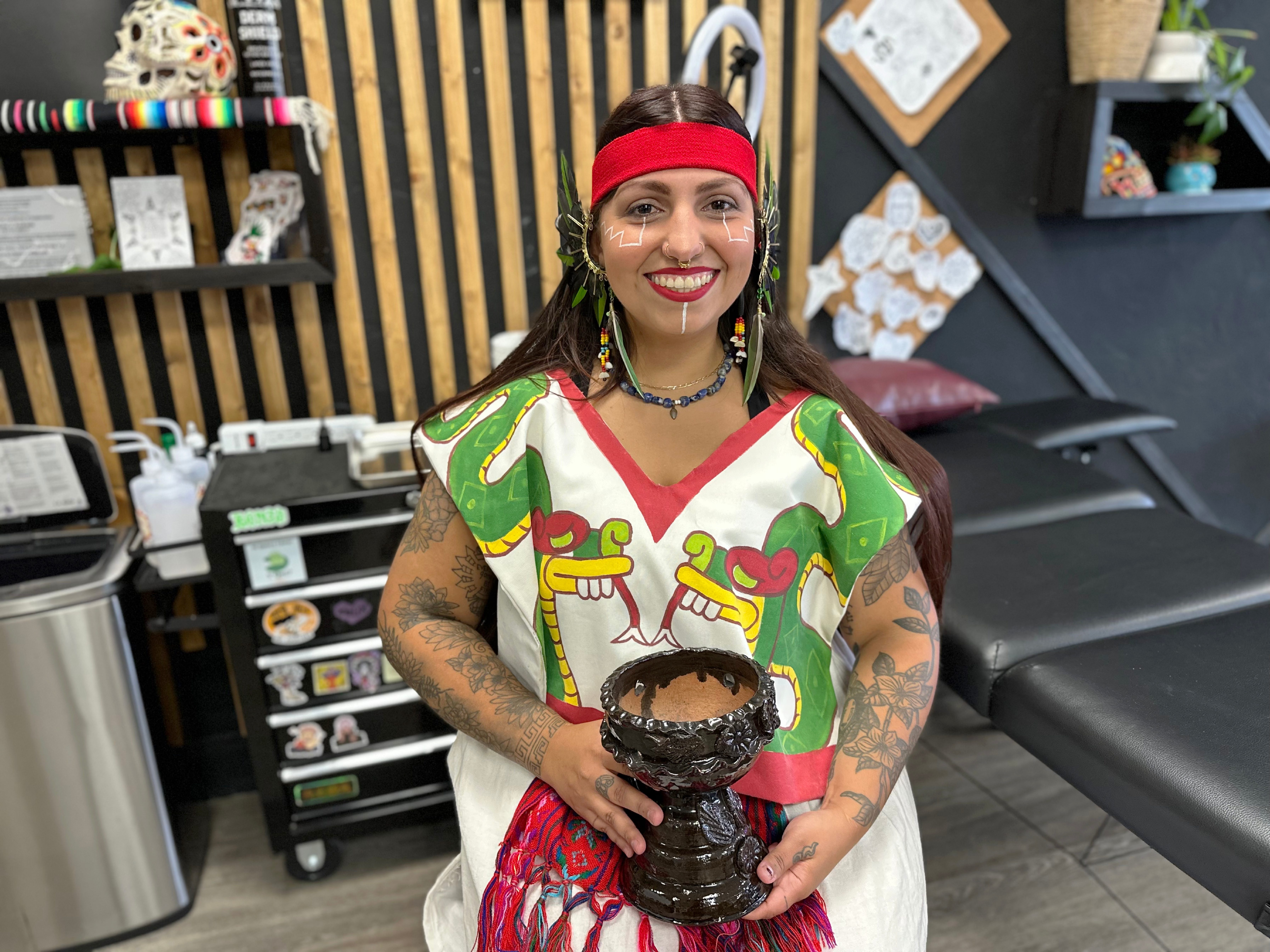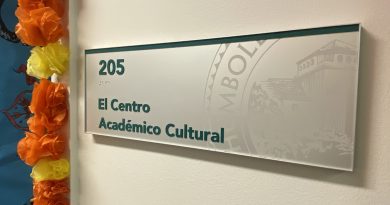Graduate students raise questions about polytechnic plan
Humboldt State University graduate students presented a collective letter at the Polytechnic Forum on Nov. 19 in response to the lack of Native representation in the plan to transition into a polytechnic university.
The meeting was hosted by Jenn Capps, provost and vice president for academic affairs, and Sherie Gordon, chief of staff. It discussed polytechnic designation, implementation updates, and working group presentations. The presentations included topics like facilities, budget, finance, reporting, and communications.
Capps explained that she and HSU President Tom Jackson, Jr. spent a lot of time with board members and presidents from other campuses, and mentioned that everyone seems to find the change to be complimentary.
“It was really well received; folks were just absolutely complimentary of all the work that we’ve done,” said Capps. “We’ve come together in a collaborative way, that we’ve engaged our external partners, we’ve engaged students, faculty, staff, really everyone towards this common vision.”
It didn’t seem that way after a portion of a collective letter was presented by Marlene’ Dusek, Environment & Community graduate student and staff at the Indian Tribal & Educational Personnel Program (ITEPP).
The collective letter was written by nine current HSU graduate students including Dusek, Amy Ithurburn, Carrie Tully, Amada Lang, Aleena Church, Molly Conso, Melissa Whipkey, Sara Goodrich, and Vanessa Tenorio. They presented eleven points for HSU to improve upon as the institution transitions to a Polytechnic University. The letter was a response to the HSU’s Polytechnic Prospectus on Sept. 1.
They point out that tribes are mentioned over 75 times in the prospectus, while “Indigenous” and “Native American” are mentioned 39 and 37 times. In total, the prospectus engages with terms like “tribe,” “Indigenous,” “Native American,” “Indian,” and Traditional Ecological Knowledge a total of 198 times. In the letter, students express that they are “tired of feeling left out and left behind in these important changes and conversations.”
“This kind of performative act is not something that we as students want to continue to see at Humboldt State University,” said Church. “And we are here to make sure our voices are heard in that we demand equal funding and representation as well.”
The letter also stated that the Polytechnic Prospectus left out new hires in the Native American Studies department, the need for Indigenous programs to have prominent space on campus and equal voting power on hiring, promotion, tenure committees, and dismissal procedures in selecting and dismissing HSU staff, faculty, and administration.
The collective believes that Traditional Ecological Knowledge (TEK) and Indigenous communities are key parts of what elevates HSU’s development into a polytechnic university for the next century. TEK refers to evolving knowledge acquired by indigenous and local peoples over time.
Many were in support of HSU’s Council of American Indian Faculty and Staff who pointed out that there is no representation of Indigenous peoples at an administrative level and that HSU does not currently have a tribal liaison or tribal affairs office.
“Traditional Knowledge, indigenous knowledge, are going to be infused throughout the curriculum,” said Capps. “And really connecting directly, also with tribal nations and tribal chairpersons, as well as different constituency groups.”
TK refers to knowledge systems embedded in cultural traditions of regional, indigenous, or local communities. Others in the collective asked if the funding for Indigenous science will be made available to students in the plan.
“The funding for first and sort of second year funding is to inform and to support programs for our 2023 launch that is illustrated in our prospectus,” said Capps. “So, Indigenous science, while a good idea, will probably end up as a program we offer in the future.”
Some of the group’s questions weren’t given clear answers to how TEK is going to be infused throughout the curriculum, how the institution is connecting with tribal nations and tribal chairpersons, and when exactly will Indigenous science be a class at HSU.
“I’ve put out a couple of requests to meet with different student groups and haven’t gotten a ton of interest back,” said Capps. “So, I’m so grateful to hear that you’re interested and want to engage, so that’s exciting, so thank you for that.”
According to the graduate students, the collective letter was emailed to the HSU administration and Jenn Capps the morning of, before the forum began. Both HSU and Capps have yet to respond to the collective of graduate students as of Nov. 30. Currently, the collective of students are trying to organize another meeting with Jenn Capps and the people behind the name change in order to further discuss the topic.
El Leñador requested a comment from President Tom Jackson’s Office and Jenn Capps, provost and vice president for academic affairs. As of Dec.1, they have not responded. The graduate collective’s letter can be read below.




